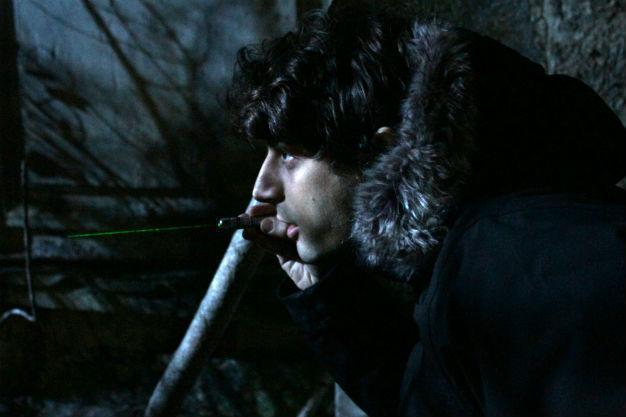‘Baskın:’ A genre-bending breath of fresh air in Turkish horror cinema
Emrah Güler
 “Fulci on crack!” was the verdict by Eli Roth, the cult American horror director, of Turkish director Can Evrenol’s debut feature “Baskın” (Raid), comparing Evrenol to Lucio Fulci, the late Italian director, the so-called “Godfather of Gore.” The Lincoln Center Film Society said, “A wildly original whatsit that reconfirms Turkey as the breakout national cinema of the moment.”
“Fulci on crack!” was the verdict by Eli Roth, the cult American horror director, of Turkish director Can Evrenol’s debut feature “Baskın” (Raid), comparing Evrenol to Lucio Fulci, the late Italian director, the so-called “Godfather of Gore.” The Lincoln Center Film Society said, “A wildly original whatsit that reconfirms Turkey as the breakout national cinema of the moment.”Having held its world premiere last year at the Toronto International Film Festival’s Midnight Madness section, Evrenol’s horror film has already attained cult status, taking its place on almost all the lists across the world compiling the best horror films of 2015. Or “one of the best horror films of the decade,” according to Chris Alexander from the popular horror pic website Shock Till You Drop.
Despite “Baskın” being young filmmaker Evrenol’s first feature, his name has had a cult following among devoted horror viewers for some time now. His short horror films like “Screws,” “To My Mother and Father,” “Turn Your Bloody Phone Off” and “Baskın,” the original version of his feature, have been selected to over 40 international genre film festivals in the last decade.
The film follows the gut-wrenching journey of five police officers on their graveyard shift into an abandoned manor, which turns out to be a trapdoor to the bowels of hell. The slow-footed first half hour of the film builds both its characters and a sense of dread amplified by the minute. Evrenol captures a perfect sense of unease, taking the audience to the edge of their seat for the shape of things to come.
The rest of the film is a gore fest, with imagery of hell, the afterlife and the underworld from 80s’ B-films, cult horror classics, Greek mythology, Dante’s Inferno and paintings of Hieronymus Bosch, taken to maximum effect with bleak cinematography and eerie sound design. Evrenol has a singular desire to shock and revolt, and he does it with a confidence and a freshness missing from the popular Turkish horror films of the last decade.
Islamic motifs in Turkish horror cinema
The last decade has seen a revival of the horror genre in Turkish cinema, or perhaps a sub-genre with a repetition of tried and tested formulae for immediate gratification of the audience expecting to see what they have become accustomed to. The appropriation of traditional and Islamic horror motifs to classic examples from Hollywood, or more recent Asian horror cinema, has become the defining characteristic of these films.
The string of recent Turkish horror films take haunted houses, teen-slashers and other-worldly entities and tailor them to Turkish and Islamic culture. Ghosts and zombies become jinns, exorcism is done by hodjas and the apocalypse takes its own version from the Quran. Historic Ottoman manors become haunted houses, and ancient spirits of Islamic folklore haunt sinners.
Perhaps the most successful Turkish horror film and, to give credit, the one that kick-started a whole genre in Turkish cinema, is director Hasan Karacadağ’s “D@bbe” from 2006, with the sixth film in the franchise having hit theaters last year. In the film, jinns find their way through the Internet to communicate with the friends of a man who committed suicide. The suicide is connected to other ones throughout the world, giving the film its undertones of the apocalypse.
An overbearing conservativeness is felt in almost all of the films, with punishment being the driving force, and those who are punished is almost always predictable. Take Biray Dalkıran’s “Araf” (Purgatory), also from 2006. Inspired by Japanese horror movies, the film takes on the consequences of abortion when a woman decides not to have her baby from her married lover. Years later, the ghost of the baby comes to haunt her.
The so-called sinners are not the only ones facing gruesome deaths, with the rich becoming victims of other-worldly encounters, like Cem Akyoldaş’s haunted house pic “Konak” (Old Mansion) from 2009. A group of university students find refuge in an old mansion when their SUV breaks down, only to have the mansion become their tomb, with each one facing a horrifying death for their sins. “Baskın” is a genre-bending breath of fresh air in an otherwise stale genre of Turkish cinema.
















